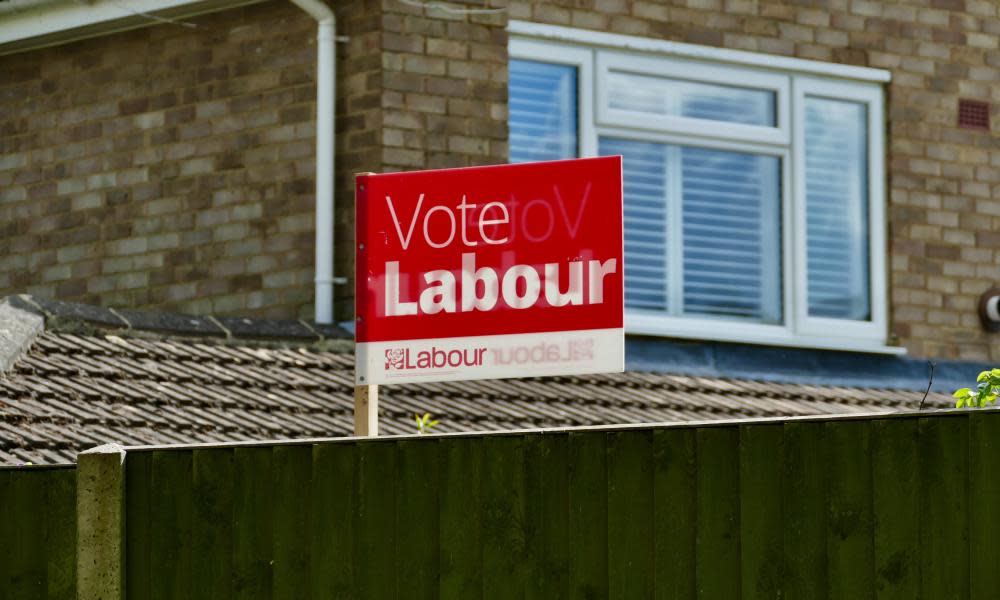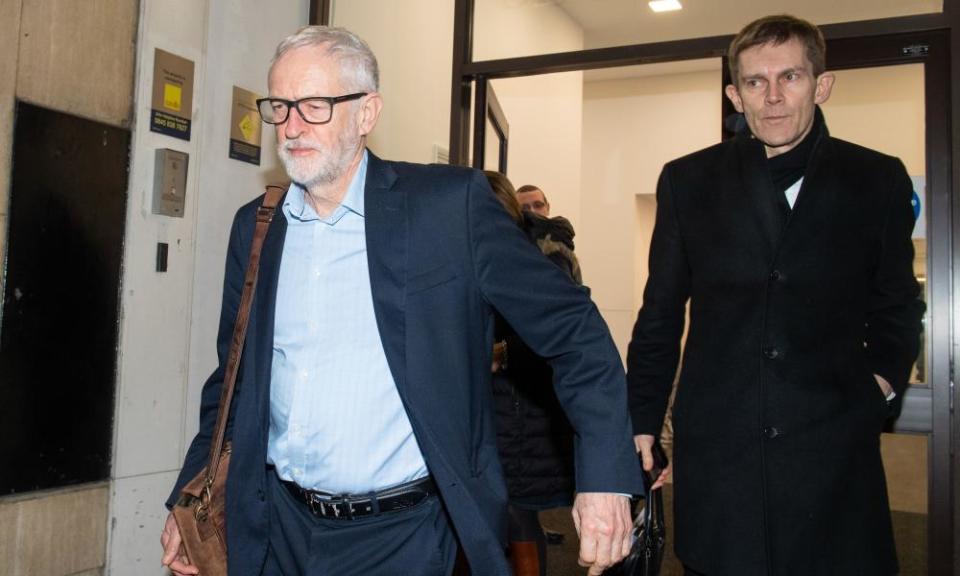Labour spending more on legal battles than campaigning, say sources

Labour is spending significantly more of its cash on fighting its legal battles than on political campaigning, multiple sources have told the Guardian, after lawyers for the party opened a new front in the party’s legal turmoil this week.
Party sources said last year campaigning was Labour’s fourth-highest spend, behind costs linked to legal cases.
This week’s naming of five of Jeremy Corbyn’s closest staffers in legal action alleging responsibility for leaking a contentious report marked a new chapter in the war between two sides of the party. The report, which contained private WhatsApp messages, aimed to demonstrate bitter factionalism among staff but has prompted legal action from many of those named.
One senior source described the situation between the two sides of the party as “full-blown lawfare” – comparing it to how competing governments in South American countries have attempted to take down each other.
Related: ‘A growing divide’: Leicester East faces potential loss of second Labour MP
The party’s financial situation has led to the departure of dozens of staff in recent weeks including a significant number of its press office.
The toll of the ongoing legal action was putting off some potential donors, staffers said, though donations can be ringfenced. “We’ve had some amazing conversations with brilliant people, some of whom have defected from other parties, some never involved in politics before – but they don’t want money spent on a legal fight,” one party source said.
Last month a senior party official revealed Labour was spending more than £2m a year on legal fees, when costs used to be 10% of that figure – about £200,000 a year.
The legal troubles alone are not the only reason for the party’s financial troubles. At least 150,000 members are reported to have left over the past two years and trade union funding has been cut. It is also £1.2m worse off because of a loss of taxpayer funds, calculated based on how many seats a party holds.
There have been other financial issues that have led to internal questions too. The general secretary, David Evans, was reluctant to use the Treasury’s furlough scheme for fear of negative publicity, so Labour used party funds to pay for up to 20 staff to be furloughed on 80% of their usual pay.
One of the legal cases – by ex-staffers featured in a Panorama programme on antisemitism – has been settled. The most pressing focus for the party’s lawyers now is action by 27 former staffers named in the 860-page leaked report. There is also a separate legal action on data breaches alone, launched by non-staffers whose personal information is mentioned within it.
One of the ex-staffers who is part of the first claim, the former director of governance Emilie Oldknow, had been given leave to appeal her attempt to force the disclosure of the names the party thought were responsible, something Labour had resisted at a hearing in January.
But that battle has come to an abrupt end after a major change of tactic by the party. This week, Labour lodged papers at the high court seeking to place responsibility for the leak on two of Corbyn’s most senior advisers, Seumas Milne and Karie Murphy, as well as Georgie Robertson, Laura Murray and Harry Hayball.

The report, which was intended as a submission to the Equality and Human Rights Commission (EHRC) inquiry into antisemitism in the party, was leaked unredacted in April 2020 and alleged that staff had worked to undermine Corbyn’s leadership and antisemitism disciplinary procedures and had sent abusive messages about senior figures.
Milne, a former Guardian journalist, worked as Jeremy Corbyn’s head of communications, while Murphy was his chief of staff. All five have vociferously denied leaking the report and sources said they would take advice on whether to countersue.
“These costs are going escalate madly,” one former staffer said. “This will lead to a much more involved and complex action that will drag on for much longer.”
The party is said to have submitted what it believes is convincing evidence for blaming the leak on the five, though it previously said in court there was “no smoking gun”. Carter-Ruck, lawyers for the five former staffers, described the move by the party as “an attempt to deflect on to them its own liability in claims … as well as the party bringing a related claim direct against the five”.
The five have had their previous legal advice paid by Unite and although the union has a new general secretary, sources said there was an expectation that support would continue. All are members of the union.
One senior party source said they believed Unite “would end up costing us more than they have given us in funding in the last 10 years”.
The ex-staffers who are making the claim, who are more politically aligned with Starmer, are understood to be divided about how to proceed and will make a decision when they see the strength of the evidence against the five. There is still some possibility of a settlement, though several members of the group feel strongly about pursuing in the party.
The surprise action against the five former staffers has also brought renewed attention to the independent inquiry that Starmer commissioned by Martin Forde QC into the allegations in the report.
Forde has delayed publication of the report, citing concerns about the legal action and an Information Commissioner’s Office (ICO) investigation. The party is expecting some form of publication in the autumn. But the delay has angered activists and there have been threats from senior figures including the MP Jon Trickett to release the evidence into the public domain.
There are other challenges on the horizon. The party could receive a fine from the ICO that could run into seven figures. There is pending action from expelled members and a threat from Corbyn to challenge the removal of the Labour whip, which has been withheld since a statement he made over the EHRC report.
Relations have deteriorated so far that the former leader sees legal action now as the only recourse, though none has yet been launched. “It’s on the tarmac,” said one source.

 Yahoo News
Yahoo News 
